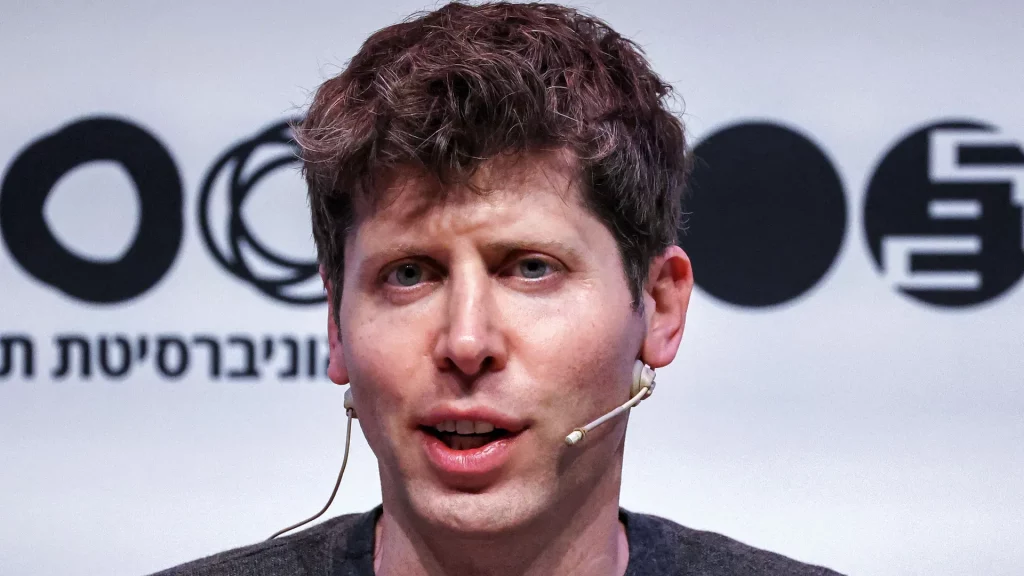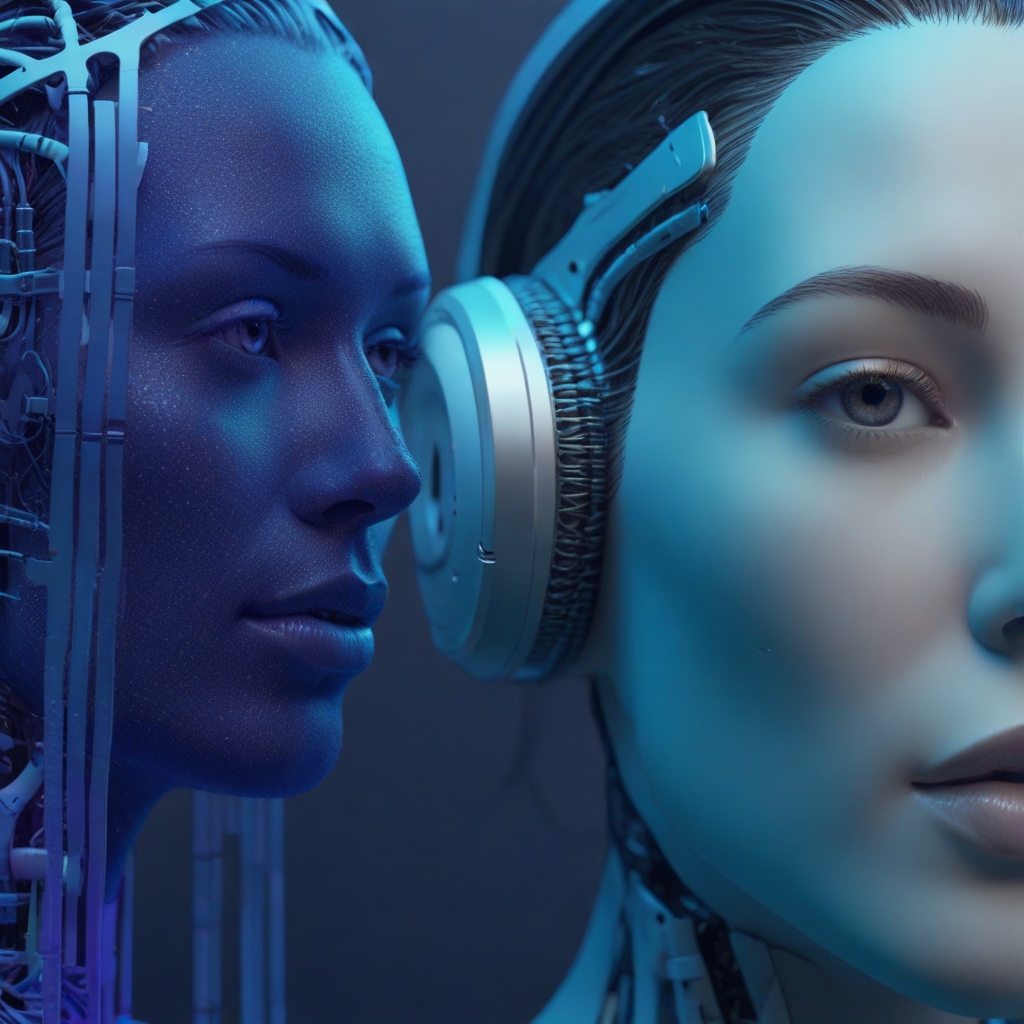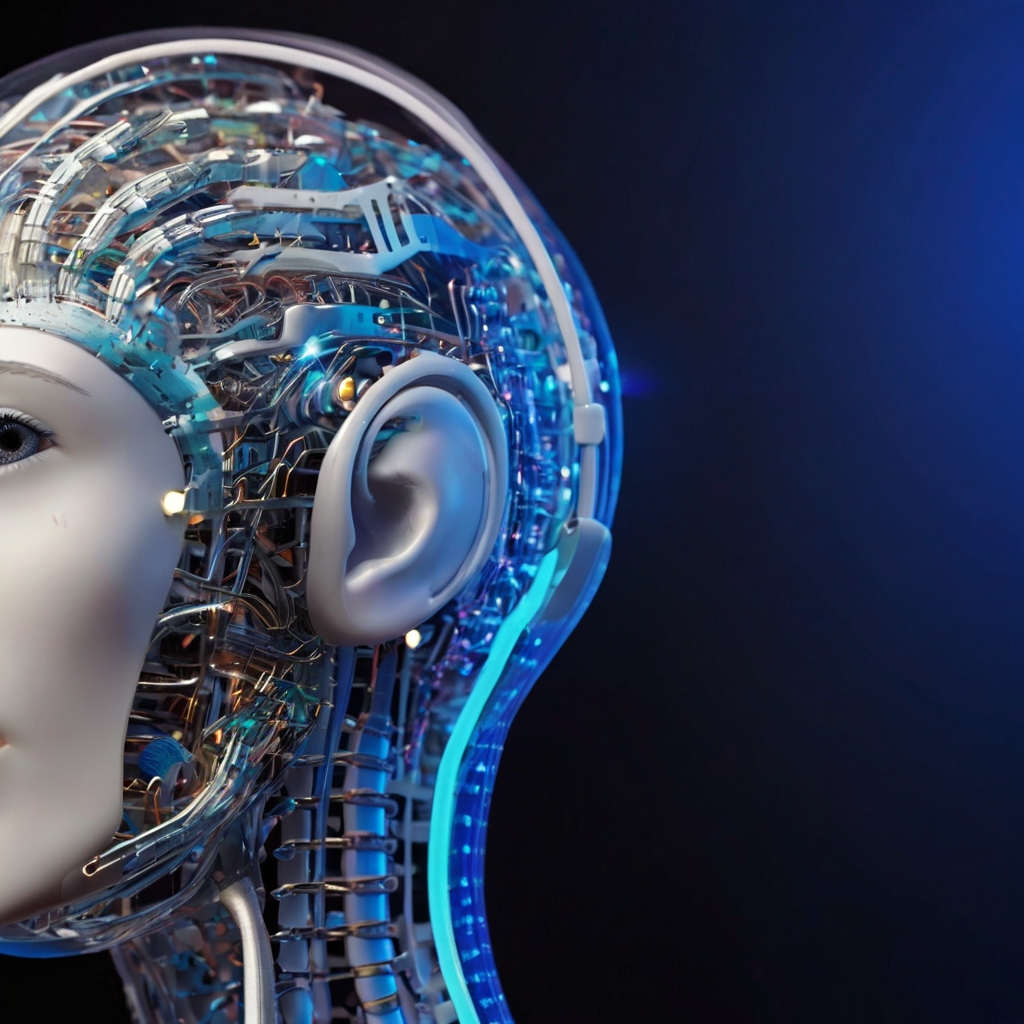In the rapidly evolving world of artificial intelligence (AI), OpenAI has once again pushed the boundaries with its newly unveiled Voice Engine technology. This groundbreaking AI tool can recreate a person’s voice from a mere 15-second audio recording, opening up a world of possibilities and raising important ethical considerations.
The Unveiling of Voice Engine
On Friday, March 31, 2024, OpenAI announced that it had allowed a small number of businesses to test Voice Engine, a program that can generate highly realistic synthetic voices that closely resemble the original speaker. The company stated that it is taking a “cautious and informed approach” to the broader release of this technology due to the high risk of abuse presented by synthetic voice generators.
How Voice Engine Works
The process behind Voice Engine is deceptively simple yet incredibly powerful. With just a 15-second recording of a person’s voice, the program can create an “emotive and realistic” natural-sounding voice that closely mimics the original speaker. This synthetic voice can then be used to read text inputs, even if the text is not in the original speaker’s native language.

In one remarkable example provided by OpenAI, an English speaker’s voice was translated into Spanish, Mandarin, German, French, and Japanese while preserving the speaker’s native accent. This capability opens up a world of possibilities for content creation, translation, and accessibility.
Early Use Cases and Applications
While Voice Engine is still in its early stages of testing, OpenAI has highlighted some of its initial use cases. The technology has already been employed in OpenAI’s text-to-speech application and its ChatGPT Voice and Read Aloud tool, demonstrating its practical applications.
Furthermore, Voice Engine has been used to provide reading assistance to non-readers, facilitate content translation, and assist people who are non-verbal, offering a new avenue for communication and expression.
A Cautionary Tale: Risks and Ethical Considerations
Although Voice Engine presents exciting opportunities, OpenAI is well aware of the potential risks and ethical concerns associated with such a powerful technology. Similar programs have already been exploited in scam calls, phishing schemes, and other forms of fraud, raising alarm bells for the responsible deployment of Voice Engine.
Perhaps more concerning is the potential for Voice Engine to be used to ramp up political misinformation and voter suppression efforts. In January 2024, New Hampshire residents received robocall messages that discouraged them from voting in the state primary, using a voice that was likely artificially generated to sound like President Biden. The Federal Communications Commission (FCC) has since declared the use of AI-generated voices in scam robocalls illegal.
OpenAI’s Approach: Caution and Collaboration
In light of these risks, OpenAI has emphasized the importance of a cautious and informed approach to the deployment of Voice Engine. The company has stated that it hopes to start a dialogue on the responsible use of synthetic voices and how society can adapt to these new capabilities.
OpenAI is actively seeking feedback from various stakeholders, including policymakers, industry experts, educators, and creatives, to ensure that their input is incorporated into the development and deployment process. Based on these conversations and the results of the small-scale tests, OpenAI will make a more informed decision about whether and how to deploy Voice Engine at scale.
Balancing Innovation and Responsibility
While OpenAI’s cautious approach is commendable, the reality is that similar voice-cloning technologies are already available and being used, sometimes with fewer safeguards. Companies like Google and startups like ElevenLabs have developed their own synthetic voice generators, which can be used for a variety of purposes, including generating audiobooks, powering chatbots, and creating automated radio station DJs.

As these technologies become more accessible, the need for responsible innovation and ethical guidelines becomes increasingly paramount. OpenAI’s efforts to explore watermarking synthetic voices and implementing controls to prevent the misuse of prominent figures’ voices are steps in the right direction, but more comprehensive measures may be required.
Potential Benefits: Preserving Voices and Accessibility
Amidst the concerns surrounding Voice Engine, it is important to highlight the potential benefits this technology could offer. One particularly poignant use case demonstrated by OpenAI involved recreating the voice of a woman whose speech was impaired due to brain cancer. By providing a brief recording of a presentation she had given in high school, Voice Engine was able to restore her voice, offering a powerful tool for those who have lost their ability to speak due to illness or injury.
Additionally, Voice Engine’s ability to translate voices into multiple languages could significantly enhance accessibility for non-native speakers, allowing them to access content in their preferred language while preserving the original speaker’s nuances and intonations.
Independent Thoughts and Considerations
While OpenAI’s cautious approach to the release of Voice Engine is commendable, it is essential to consider the broader implications of this technology and its potential impact on society.
One concern is the erosion of trust and authenticity in audio and video content. As synthetic voice and video generation technologies become more advanced and widely available, it may become increasingly difficult to discern what is real and what is artificially generated. This could have far-reaching consequences for journalism, legal proceedings, and even personal interactions, as the reliability of audio and video evidence is called into question.
To address this concern, there is a pressing need for robust methods of authentication and verification for audio and video content. Techniques such as digital watermarking, blockchain-based timestamping, and advanced forensic analysis may play a crucial role in establishing the provenance and authenticity of media assets.
Furthermore, there is a need for public education and awareness campaigns to help individuals recognize the potential risks and limitations of AI-generated content. By fostering a more informed and discerning public, we can better navigate the challenges posed by these emerging technologies.
Another consideration is the potential impact of Voice Engine on the creative industries, particularly voice actors and performers. While the technology could open up new opportunities for content creation and accessibility, it also raises concerns about the protection of intellectual property rights and the potential displacement of human talent.
To address these concerns, it may be necessary to establish clear guidelines and legal frameworks surrounding the use of synthetic voices, particularly in commercial contexts. This could involve the development of licensing models, royalty structures, and ethical guidelines to ensure fair compensation and protection for voice actors and performers.
OpenAI’s Voice Engine is a remarkable technological achievement that exemplifies the rapid progress being made in the field of artificial intelligence. While the potential applications of this technology are vast, ranging from accessibility solutions to content creation and translation, the risks and ethical concerns surrounding its misuse cannot be ignored.

As we navigate this new frontier, it is essential that we strike a careful balance between innovation and responsibility. Through open dialogue, collaboration with stakeholders, and the establishment of robust ethical guidelines and legal frameworks, we can harness the power of Voice Engine while mitigating the potential risks.
Ultimately, the responsible deployment of Voice Engine and similar technologies will require a collective effort from technology companies, policymakers, industry experts, and the general public. By fostering a culture of transparency, accountability, and ethical consideration, we can ensure that these powerful tools are used to enhance human capabilities and enrich our lives, rather than undermining our trust and eroding our shared values.
Copyright©dhaka.ai
tags: Artificial Intelligence, Ai, Dhaka Ai, Ai In Bangladesh, Ai In Dhaka, OpenAi



